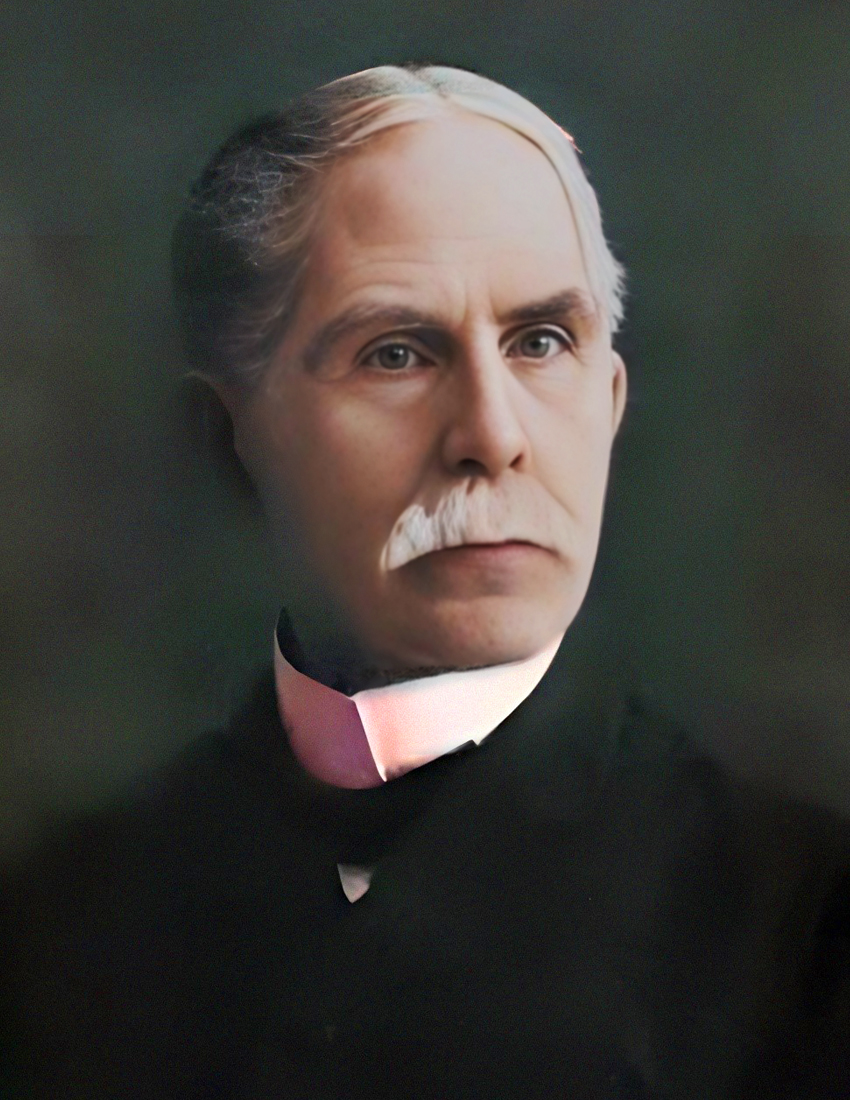Born: May 7, 1839, Orwigsburg, Pennsylvania.
Died: November 25, 1929, Chicago, Illinois.
Buried: Oak Woods Cemetery, Chicago, Illinois.
Elisha Hoffman

Hymns by Elisha Hoffman
Elisha Albright Hoffman: The Prolific Hymn Writer and Composer Who Inspired Generations
Elisha Albright (E. A.) Hoffman, born on May 7, 1839, in Orwigsburg, Pennsylvania, was a remarkable Presbyterian minister, prolific composer, and dedicated editor who left an indelible mark on the world of sacred music. With over 2,000 hymns to his credit and more than 50 song books edited, Hoffman’s contributions to Christian worship continue to inspire and uplift congregations around the world.
A Musical Upbringing in the Hoffman Household
Growing up in a devout Christian family, Hoffman was surrounded by sacred music from an early age. His father, Francis A. Hoffman, served as a minister in the Evangelical Association for over six decades, and both of his parents, who were of German descent, nurtured young Elisha’s musical talents. Daily family worship times, which included hymn singing, played a crucial role in developing Hoffman’s love for sacred music and his belief that song was as natural to the soul as breathing was to the body.
Education and Early Ministry
After completing his education at Central High School in Philadelphia, Hoffman attended Union Seminary in New Berlin, Pennsylvania, which was associated with the Evangelical Association. Following his graduation, he spent 11 years working with the denomination’s publishing house in Cleveland, Ohio. In 1873, at the age of 34, Hoffman was ordained as a Presbyterian minister.
Pastoral Ministry and Hymn Composition
Throughout his ministry, Hoffman served several churches in Ohio, Michigan, and Illinois. His longest tenure was at the First Presbyterian Church in Benton Harbor, Michigan, where he pastored for 33 years. It was during these years of ministry that Hoffman composed the majority of his hymns, which now number over 2,000 in print.
Popular Hymns by Elisha Hoffman
Among Hoffman’s most beloved and widely recognized hymns are:
1. “What a Wonderful Saviour!”
2. “Enough for Me”
3. “Are You Washed in the Blood?”
4. “Leaning on the Everlasting Arms”
5. “No Other Friend Like Jesus”
6. “I Must Tell Jesus”
7. “Is Your All on the Altar?”
These timeless compositions continue to be sung in churches worldwide, testament to Hoffman’s gift for creating simple, yet profound, hymns that resonate with worshippers of all ages.
Hoffman’s Definition of a Hymn
Hoffman’s approach to hymn writing was rooted in his belief that a hymn should be “a lyric poem, reverently and devotionally conceived, which is designed to be sung and which expresses the worshipper’s attitude toward God or God’s purposes in human life.” He emphasized simplicity in form, genuine emotion, poetic and literary style, and spiritual quality, all with the goal of unifying congregations in worship.
Editing and Compiling Song Books
In addition to his prolific hymn writing, Hoffman was also a diligent editor, compiling and editing over 50 song books throughout his career. Some of his notable works include “The Evergreen” (1873), “Spiritual Songs for Gospel Meetings and the Sunday School” (1878), “Temperance Jewels” (1879), “Bells of Victory” (1888), and “Jubilant Voices” (1907).
A Legacy that Endures
Elisha Albright Hoffman’s life was one of devotion to God and to the creation of sacred music that continues to inspire and uplift Christians around the world. His hymns, born from a deep love for God and a desire to lead others in worship, remain a cherished part of the Church’s musical heritage. Hoffman’s legacy serves as a testament to the power of simple, heartfelt music in drawing people closer to their Creator.
When Hoffman passed away on November 5, 1929, in Chicago, Illinois, he left behind a rich treasury of hymns and a life dedicated to serving God and His people. As congregations continue to sing his beloved compositions, Elisha Albright Hoffman’s impact on sacred music endures, reminding us of the eternal truths that he so beautifully expressed through his hymns.


